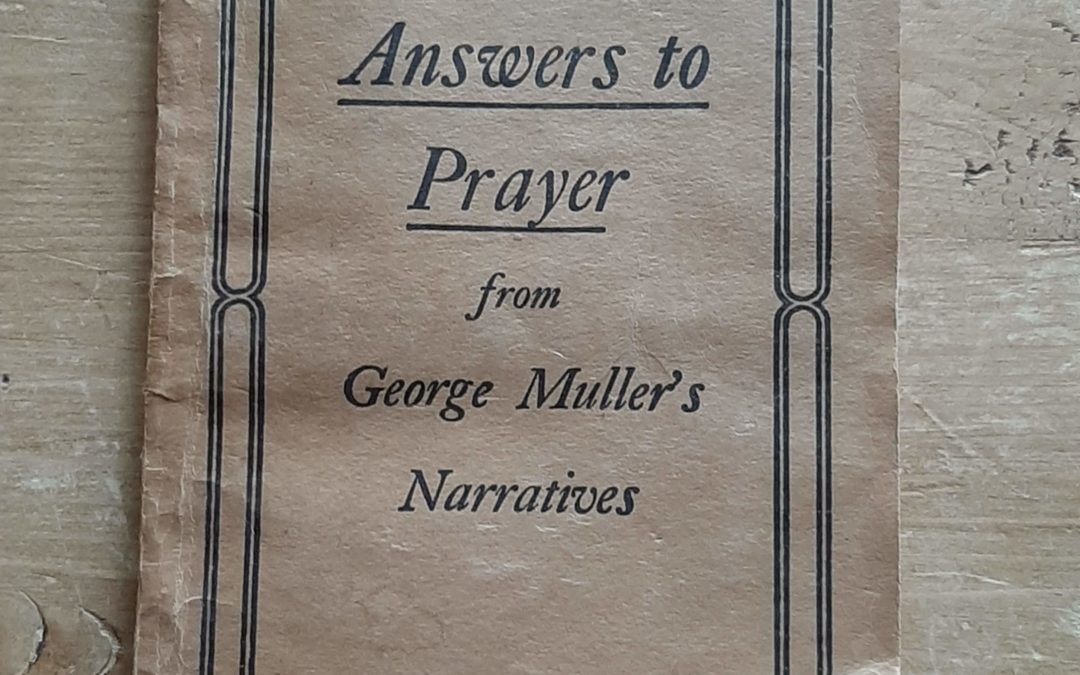John 17
How many times have you asked someone to pray for you? How many times have you told someone you would pray for him/her? For many people it is instinctive to tell someone who is hurting, “I will pray for you.” Am I right? Here are some follow up questions. How many times do you think folks who said they would pray for you truly did pray for you? Perhaps at least they did once. How soon after telling someone you would pray for him/her did you truly pray for that person? How often after saying you would pray for the person did you?
Did you know there is a person who prayed for you over two thousand years ago and still does if you meet the criteria of those for whom he prays?
I am thinking of Jesus, God in the flesh. During the last few days of his life on earth he prayed a long prayer. That prayer is found in the 17th chapter of the Gospel of John, the fourth book of the New Testament. In that prayer Jesus prays for himself (verses 1-5), he prays for his disciples, specifically his apostles (vs. 6-19), the twelve closest followers who would become the foundation of the church with Jesus being the cornerstone (Ephesians 2:20-22), and finally he prays for YOU, if you meet the criteria of those for whom he prays in verses 20-26. It is in those last seven verses of Jesus’ prayer that we hear him praying for you, if you meet the criteria he states in verse 26. Here is what Jesus prayed: I do not pray for these only (those for whom he prays in verses 6-10), but also for those who will believe in me through their word. Do you see the criteria of those for whom Jesus prays? For those who will believe in me through their word. The apostles Matthew, Peter and John all wrote books included in the 27 books of the New Testament. Have you read the Gospel of Matthew? Have you read the two letters of Peter? Have you read any of the five writings of John – the Gospel of John, the three letters of John and the Revelation, the last book of the Bible?
John wrote his Gospel so the people of His day, especially the Jewish people would believe that Jesus is the Christ, the Son of God, and that by believing you may have life in his name (John 20:31). Do you believe Jesus is the Christ, the Son of God? We must be careful we do not misunderstand what John is saying here. In the book of James, we read: But someone will say, “You have faith and I have works.” Show me your faith apart from your works, and I will show you my faith by my works. You believe God is one; you do well. Even the demons believe – and shudder! (James 2:19-20). What is the problem with simply affirming Jesus the Christ, the Son of God? To do so is no different than affirming Caesar Augustus was Roman ruler when Jesus was born. James is arguing it is not enough to affirm the reality of the person of Jesus; that is, that he is the Christ, the Son of God. To believe in Jesus is to love him by obeying him. Listen to Jesus: Whoever has my commandments and keeps them, he it is who loves me. And he who loves me will be loved by my Father, and I will love him and manifest myself to him. (John 14:21).
Now you may be saying to yourself, but it is impossible to obey Jesus all the time. You are absolutely correct, not one of us is able to obey Jesus all the time. That is why it is important for us to look closely at the contents of Jesus’ prayer for Christians in verses 20-26.
Do you see He prays for Christians to be ONE? That they may be ONE, as You, Father, are in Me, and I in You; that they also may be ONE IN Us . . . (verse 21). He reiterates this ONENESS in verses 22 and 23: that they may be ONE just as We are ONE and be made perfect in ONE. Wherein rests our ONENESS according to Jesus? Does it rest in our being of the same nationality? Does it rest in our being of the same denomination? Does it rest in our being equally educated? Does it rest in our being in the same economic strata? On I could go citing worldly standards of ONENESS. What Jesus cites ls the basis of our ONENESS, is our union with the Father and Son in verse 21: they also may be ONE IN US. More pointedly, I [Jesus] IN them! The core of our ONENESS is Jesus in us – Jesus in each one of us – in you and in me if we genuinely believe in him!
Does this not raise the question, how will we know Jesus is IN us – how do you know Jesus is in you? In verse 21, to believe IN Jesus is to believe He came from the Father. This means we embrace the virgin birth. It means we embrace Jesus is both God and man! Another way we know Jesus is in us is found in verse 22: And the glory which You gave ME I have given to them, that they may be ONE just as We are ONE. One commentator raised the question, what was the glory of Jesus? He pointed out there are at least three ways Jesus spoke of glorifying the Father. Here they are:
One way Jesus glorified the Father was in the cross. There are a plethora of ways Jesus glorified His Father through the cross. One way is by being the propitiation for us (1 John 4:10). What is propitiation? He took the wrath we deserved. Children, this is a big word, but think of it this way, you do something for which you would ordinarily be spanked – punished. Instead of you being punished for what you did wrong, let us say your brother or sister stood in your place and took the punishment you deserved. That is propitiation on a human level. Psalm 5:5 tells us God is a – hater of those who work iniquity. Ephesians 2:13 tells us – we were children of wrath! We are no longer under God’s wrath because Jesus died in our place. Praise the Lord! Because we who believe in Jesus are in union with him, as we take up the cross, denying ourselves and following Jesus we glorify our Father. We are to deny ourselves when we do not give into fleshly/sinful desires. We do that by taking up the cross; that is, remembering when Jesus died on the cross, we died with him so that sin no longer has dominion in our lives. This is what it means to follow Jesus. We glorify God when we do that. When we live in the shadow of the cross we have a Christ-like attitude toward others.
A second way Jesus glorified the Father is by his perfect obedience. Jesus made it clear His food was to do the will of His Father by living according to His Word! Think of the account of His being tempted in wilderness. Check it out in Matthew 4:1-11.
Because we are united to Jesus, when we find our deepest satisfaction and fulfilment in obedience to God, we glorify our Father. Remember what we saw earlier in the article? Jesus said those who love Him obey His commandments. John also makes that point in his first letter (1 John 5:1-4). John reminds us, the commandments are not burdensome for His brothers and sisters. Yes, that is the third verse of First John 5. If you are familiar with the Psalms, we sing Oh, how I love Your law, it is my meditation night and day! in Psalm 119:97. Go to Exodus 20 and read the first 17 verses – what we understand to be the ten commandments. The prophet Jeremiah tells us if we are Christians, God writes his law on our hearts. Check it out in Jeremiah 31:33.
Jesus said, “But what comes of the mouth proceeds from the heart, and this defiles a person. For out of the heart comes evil thoughts, murder, adultery, sexual immorality, theft, false witness, slander” (Matthew 15:18-19). Because Jesus gives us the glory which the Father gave him, instead of these sinful behaviors dwelling within our heart, we who believe in Jesus have the law of God written on our hearts. How about it? What comes from your heart? Do you struggle to do the law of God? With Jesus IN Christians our desire is to obey, right?
So, what happens when we disobey? John tells us in his first letter, chapter 1 and verse 9. First, we must read verse 8. If we say we have no sin, we deceive ourselves, and the truth is not in us. Now we are ready for verse 9. If we confess our sins, he is faithful and just to forgive us our sins and to cleanse us from all unrighteousness.
In His being recognized as having a special relationship with God, a third way Jesus glorified His Father was realized. Jesus pointed people to His Father Who sent Him. When attention is drawn away from ourselves, to our Lord and Savior, Jesus, we glorify our Father. One way we do this is giving honor to our Lord and Savior when we are honored because we did something worthy of recognition. The abilities we enjoy which enable us to do things well are gifts from our Creator God; therefore, it makes sense to recognize Him publicly whenever we are complimented for something we do well. Some Christian even use the Latin phrase Soli Deo Gloria – Glory to God alone.
Of course, when we are truly glorifying God and enjoying Him, we will be living as ONE because the only way we are able to do this is if Jesus resides within us. Our ONENESS is seen in our relationship with one another. How do you interact with people on a daily basis? The Apostle Paul talks about humbly counting others as more significant than oneself. In fact, he takes it a step further and calls us not only to look after our own interests, but the interests of others (Philippians 2:3-4). Think of the witness you will be to those around you if you treat them this way!
We have seen how Jesus prays for those who believe in him that they will be one. He says that oneness rests in our union with him. We know we are united to him because he has shared the glory the Father gave him with us. We manifest that we enjoy that glory, among other ways by taking up the cross daily, obeying lovingly and showing forth Jesus. Now we will notice Jesus prays we will be with him.
Listen to verse 24: Father; I desire that they also whom You gave Me may be with me where I am . . . Isn’t this a reminder of Jesus’ promise in chapter 14 of John’s Gospel? There Jesus says: Let not your hearts be troubled; you believe in God, believe also in Me. In My Father’s house are many mansions; if it were not so . . . I go to prepare a place for you. And if I go and prepare a place for you, I will come again and receive you Myself; that where I am there you may be also. (1-3) Jesus promised this. Here He prays that this will be the case! Does this not afford us assurance of our salvation?
To what end? We have seen what it is that Jesus prays for us. Now we notice what becomes true of us is not an end in itself. We who are believers in the Lord Jesus Christ. We who have Jesus living in us are a billboard in the world. Isn’t this what Jesus is saying in verses 21 and 24. Listen again to those verses: That the world may believe that You sent Me. I IN them, and You in Me, that they may be made perfect IN one; here it is, that the world may know that You have sent Me, and have loved them as You have loved Me.
How well are we showing forth that Jesus has come from the Father – He Who is, as the God-Man before a watching world?
How well are we showing forth the love the Father had for the Son, by the way we show forth the love He has showered on us?
Amen



